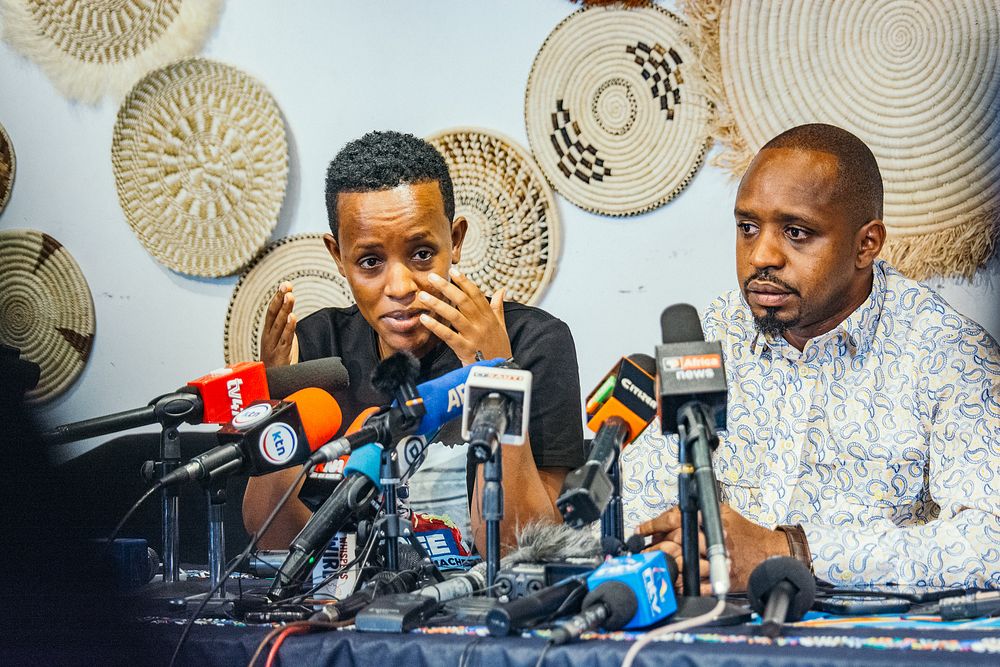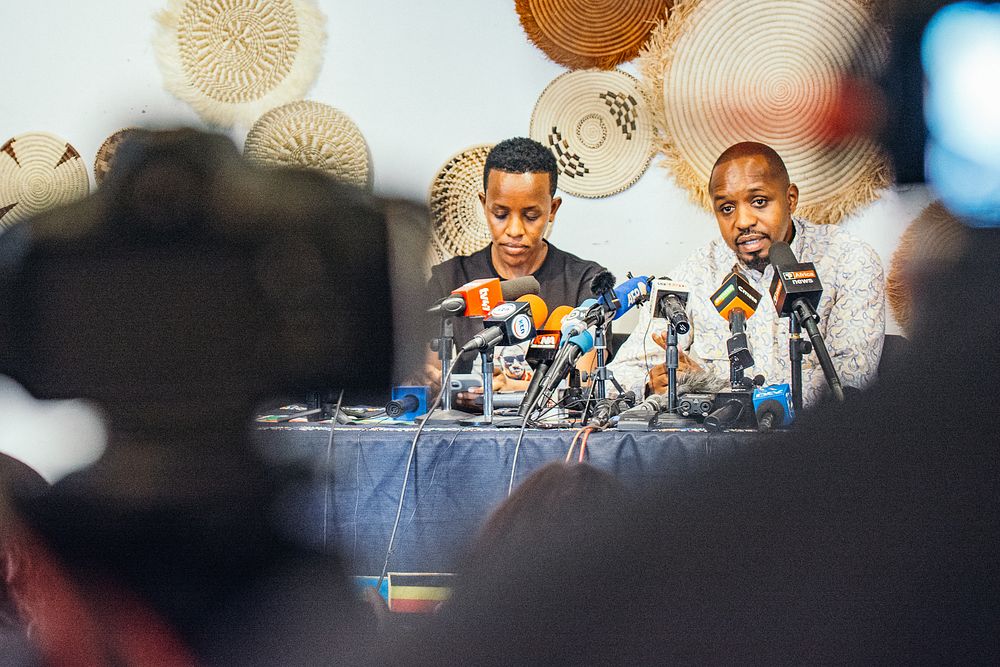On 18 July, (coincidentally the birthday of Nelson Mandela), a landmark case was filed before the East African Court of Justice by Ugandan Agather Atuhaire, -a member of ZAM’s partner Network of African Investigative Reporters and Editors (NAIRE)- and Kenyan human rights defender Boniface Mwangi, together with seven regional and international civil society and legal bar organisations. Their targets are the Tanzanian authorities who oversaw Atuhaire’s and Mwangi’s kidnapping and torture lasting four days in May this year, when they had travelled to Tanzania to observe a political trial against opposition politician Tundu Lissu.
Repression in East African countries like Tanzania, Kenya and Uganda-, has been increasing in recent years, with many political prisoners being held in Uganda, scores of youth killed in protests in Kenya and an increasing wave of abductions, disappearances and torture in Tanzania.
Beatings and sexual assault
The Ugandan-Kenyan lawsuit is seeking relief from Tanzanian and other regional authorities to remediate what was done to them after they legally travelled to the country. Abducted from their hotel by immigration authorities on 19 May and handed over to a torture squad, they suffered beatings and sexual assault in a hidden location for four days before each were separately taken to the border regions with their countries and abandoned on the side of the road.
"When a state goes rogue, the law must step in to protect its victims”
"When a state goes rogue, the law must step in to protect its victims. We refuse to be silenced. We are going to court not only to fight for justice but show the whole world what happened to us in the dark. We hope this case will give more victims of the state the courage to speak up and seek justice. We can’t allow evil to prosper," Boniface Mwangi states in a press release announcing the lawsuit.
Remedies sought
Among the remedies sought are public apologies, compensation of at least US$ 1 million to each of the victims, rehabilitation and psychological support, formal condemnation of the unlawful acts perpetrated against them by the East African Community (EAC)’s Secretary-General, institutional and legal reforms to prevent recurrence, and a convening of the EAC Summit to review peace, security, and governance in the region.
Called a “historic move to uphold the rule of law, justice, and human rights across East Africa” in the press release and a “landmark” case for the “soul of East Africa” by pan-African legal media platform Africa Legal, the lawsuit is directed at “agents of the Government of Tanzania”, and Tanzania’s Attorney General as well as at Uganda’s and Kenya’s Attorney Generals and the Secretary General of the East African Community (EAC). The press release says the reason for the regional action is that “the Kenyan and Ugandan Governments failed in their legal duty to safeguard their nationals and exhaust all diplomatic and consular avenues to secure their safe return home. Additionally, the East African Community Secretary General failed to take any corrective action within the East African Community despite the enforced disappearance being widespread knowledge.”
This is “a historic move to uphold the rule of law”
Among the group of applicants are the International Commission of Jurists, the Pan African Lawyers union, The Kenya Human Rights Commission and the East African Law Society.
Tanzanian officials were Dutch-trained
ZAM, which is supporting the lawsuit with a contribution from its legal fund, earlier issued a press release drawing attention to the fact that the Tanzanian immigration authorities who had handed Atuhaire and Mwangi over to the torture squad had been part of a training programme by the Dutch Ministry of Foreign Affairs. The programme, called Hostmanship, is managed by the Ministry of Foreign Affairs ‘Return and Departure’ arm, which oversees return of unwanted immigrants from the Netherlands to their countries of origin. Project Hostmanship aims to ensure that immigration services in countries successfully restrict their citizens from leaving for Europe illegally. In this case, the Tanzanian immigration authorities used their newly built-up capacity to deal with ‘unwanted foreigners’ in their own way.
“If the Netherlands does not want people to leave Tanzania, the Dutch government, instead of assisting dictators, would do better supporting Tanzanian forces for democracy so that citizens can stay safely home in freedom”, ZAM director Sean Fitzpatrick stated in the press release at the time.

Call to Action
ZAM believes that knowledge should be shared globally. Only by bringing multiple perspectives on a story is it possible to make accurate and informed decisions.
And that’s why we don’t have a paywall in place on our site. But we can’t do this without your valuable financial support. Donate to ZAM today and keep our platform free for all. Donate here.


